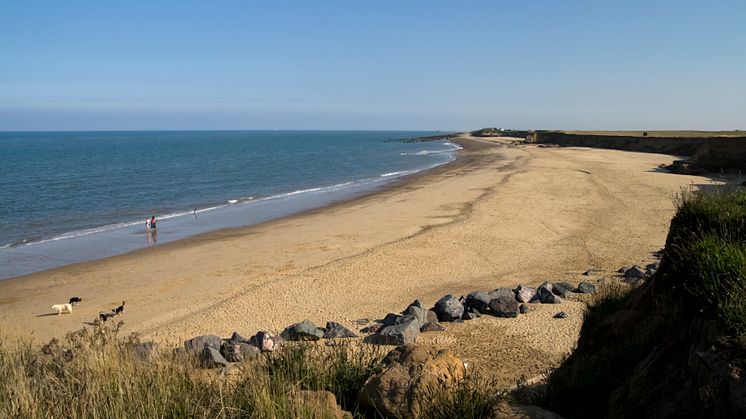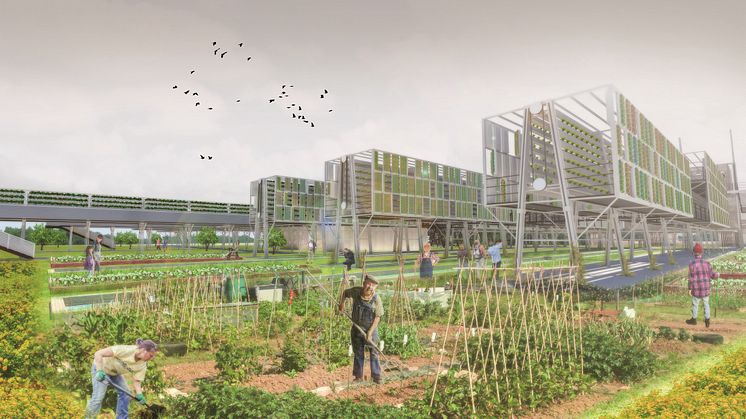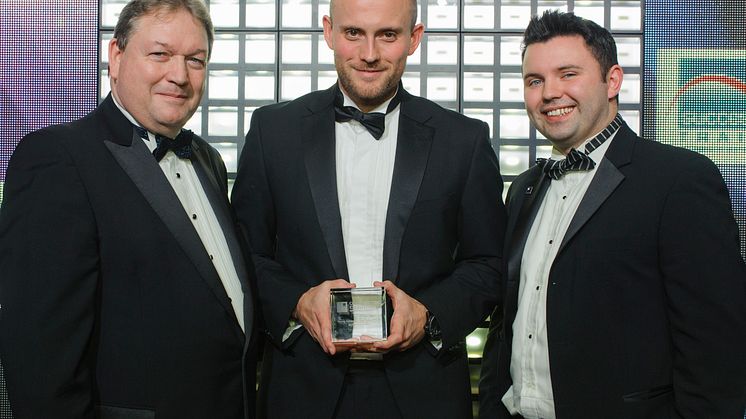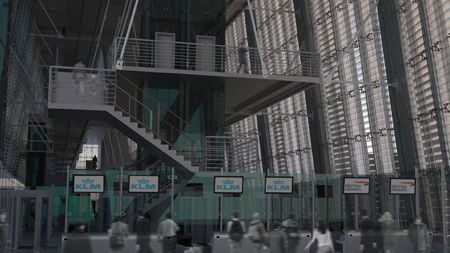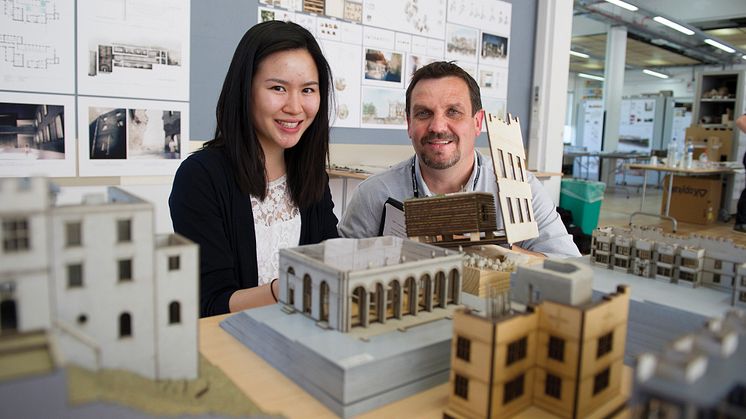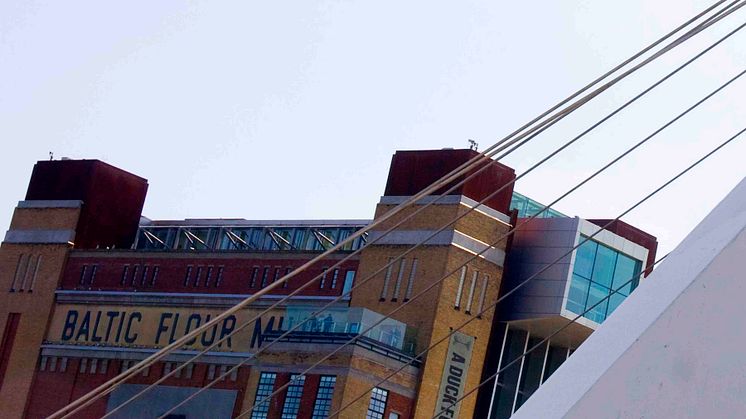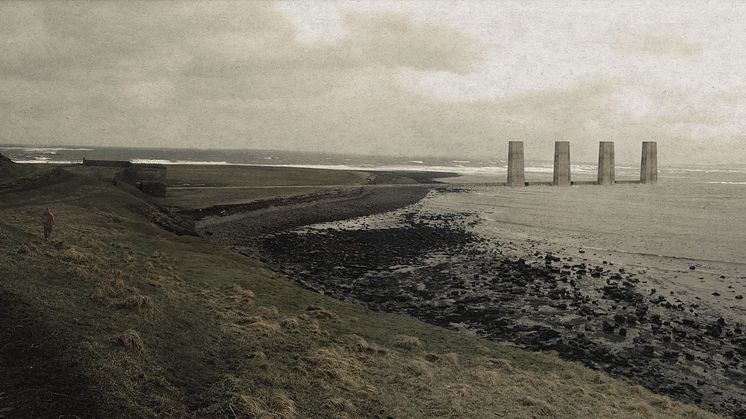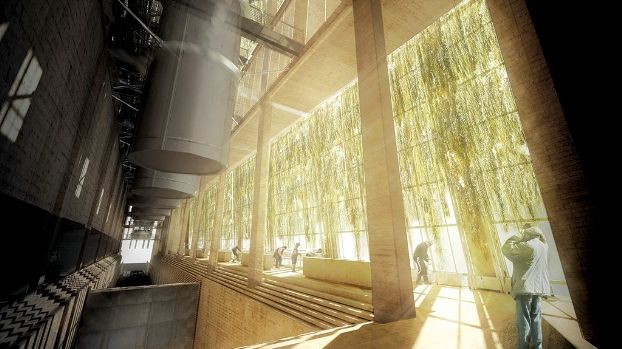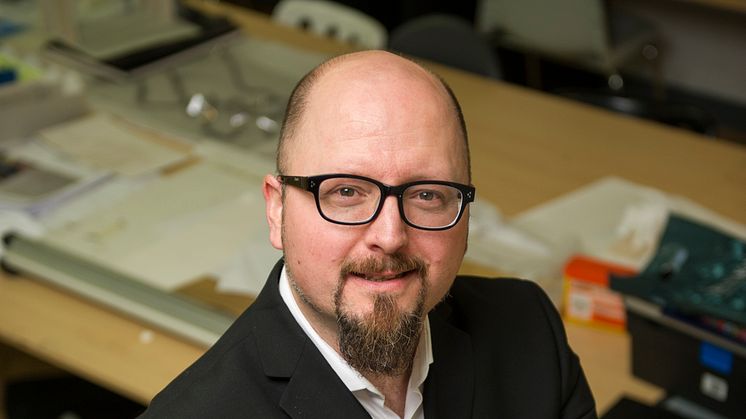
Press release -
FEATURE: Bringing IKEA to the classroom
The creator of IKEA’s ‘flat-pack homes’, David Morton, talks about making the change from international architect to teaching the next generation of students at Northumbria University.
There can be few more rewarding feelings for an architect than to see their designs become a reality. As the former lead architect for IKEA’s affordable BoKlok homes range, David Morton has had that pleasure on a global scale. But little did he know that the true impact of his creations would be expressed to him on a much more personal level.
“A single father came up to me in tears to personally thank me for creating a home he could afford because it meant he could have his daughter stay with him,” David recalls.
“It absolutely floored me in a really good way and as a father myself I was nearly in tears too. In moments like that you realise what you’re drawing on paper really makes a massive difference to people’s lives.”
David, who is now a senior lecturer in Architecture at Northumbria, became IKEA’s youngest ever lead architect in 2006 on the BoKlok range. It was launched to create affordable housing across Europe and help people get onto the property ladder. From the original development in Sweden, BoKlok has been rolled out in the UK and across Europe, including Norway, Sweden, Denmark and Germany, and has sold more than 6,000 homes.
“You can build the entire structure and most of the internals in 24 hours,” David says. “In 2-3 weeks you have a finished house. Combined with a total price of less than £71k and you can see why the homes have proved so successful for IKEA.”
The BoKlok design was submitted to the Royal Institute of British Architects (RIBA) and accepted into the British Architectural Library in London. Elements were also used in the construction of the 2012 Olympic Village. After a number of years commuting between his native North East and IKEA’s headquarters in Europe, David decided to make a change and move from professional practice to learning and teaching.
“It felt really good to give something back,” David says. “It is a great feeling to bring my experience from more than seven years of training and 20 years of professional practice into the classroom. I love working with students, it’s a super creative atmosphere.”
David teaches on Architecture, Architecture Technology and Masters of Architecture programmes. He also became one of the original members of BIM Academy, the unique joint venture between Northumbria and Ryder Architecture. BIM, or Building Information Modelling, involves the coordinated use of digital information about a building, including 3D models, right through its lifecycle from idea to finished project.
He says: “It is a completely different way of working. It is far more realistic as you can question everything and explore the ‘what ifs’ of your building project using design tools that are parametric and responsive to your ideas and changes.
“BIM is moving so fast as a medium that every time you think you reached a point with it, the game moves on again.”
David is also an active researcher. Alongside Professor Steve Lockley, he is currently exploring, via his PhD, the pedagogy of using BIM in design and studio teaching.
“The boundaries of the learning journey in the academic studio are now being explored at an increasingly deeper level,” he says. “The learning and teaching landscape is changing in terms of students’ requirements as a reflection of new societal goals. What is expected in today’s environment is now different than five years ago, with students requiring a change and deeper learning to their journey.”
David’s appetite for understanding how things work and fit together informs another of his passions. His lifelong obsession with cars has seen him purchase and refurbish all three of the original Minis used in the classic film The Italian Job with Michael Caine. This led to an interested collaboration with Northumbria Honorary Graduate, AC/DC’s Brian Johnson, for the Discovery Channel in the ‘Cars that Rock’ series which aired last year.
“It was fantastic to work with Brian and be interviewed by him for the first programme of the series,” David recalls. “He has the same passion for design and building things as I do. It was like having a great friend around to chat about cars while driving both the Minis and Brian’s 458 Italia. Fantastic fun.”
As an internationally respected academic and architect, David has found himself in increasing demand. He is a visiting professor at El Cesi in Paris and has been asked to appear at this year’s International BIM summit in Barcelona as opening keynote speaker. Despite his occasional globe-trotting, David remains firmly rooted in the North East where he can pass on his enthusiasm and expertise to a new generation of architects at Northumbria.
He says: “Growing up, I really enjoyed taking things apart to see how they worked. More importantly, I enjoyed putting them back together again. This exploration has been somehow lost in the digital generation, but I hope to pass on that enthusiasm and inspire my students.
“Architects have a real gift. We create the backdrops to people’s lives, where they live and work. I think it’s important to keep sight of that and it is moments like those with that father than remind you of that, even more than the awards and accolades.”
David will be speaking at the RIBA Design through Production conference taking place on campus on Wednesday 18 February. For more information about this event click here.
Architecture at Northumbria was rated 6th in the UK by The Guardian, 7th by the Sunday Times, and was also in the top ten of the Complete University Guide 2015. To find more about studying architecture at Northumbria visit www.northumbria.ac.uk/architecture
Categories
Northumbria is a research-rich, business-focussed, professional university with a global reputation for academic excellence. To find out more about our courses go towww.northumbria.ac.uk
If you have a media enquiry please contact our Media and Communications team at media.communications@northumbria.ac.uk or call 0191 227 4571.








